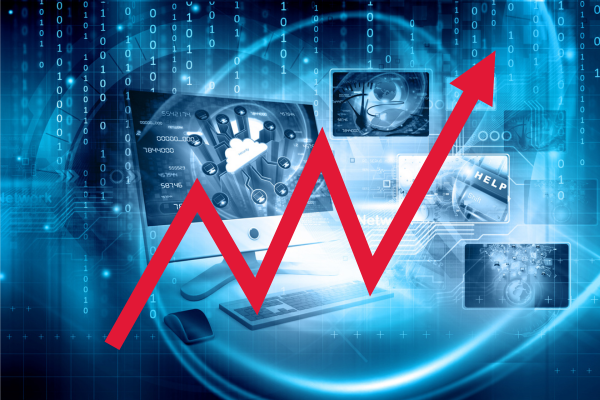
Key Tech Terms and Trends You Should Know!
In the ever-evolving landscape of technology, staying informed about the latest trends and understanding the associated buzzwords is crucial. Here’s a concise guide to some prominent technology trends and buzzwords you should be familiar with. This will provide a foundational understanding of each term, offering insight into their applications and significance in the tech landscape.
Artificial Intelligence (AI)
AI, catapulted into the limelight by ChatGPT in November 2022, is the backbone of voice recognition (Siri, Google Assistant), camera features, and content recommendations (Netflix). It harnesses computer science and vast datasets to autonomously learn, adapt, and solve problems.
AI refers to machines or systems that mimic cognitive functions associated with human intelligence, such as learning, problem-solving, and decision-making.
Blockchain
Blockchain, known for Bitcoin, is a secure, decentralised ledger. Beyond cryptocurrencies, it ensures data integrity in decentralised finance (DeFi), non-fungible tokens (NFTs), and smart contracts.
Blockchain is a decentralised and distributed ledger technology that securely records transactions across multiple computers.
Cloud Computing
Cloud computing provides on-demand access to computing resources (servers, storage, databases) over the internet, eliminating the need for physical infrastructure.
Cybersecurity
Cybersecurity involves practices, technologies, and processes designed to protect systems, networks, and data from cyber threats.
Data Analytics
Data analytics involves analysing and interpreting complex datasets to extract valuable insights, inform decision-making, and predict future trends.
Distributed Cloud
Distributed Cloud, a cloud computing architecture that utilises multiple clouds managed from a single control plane, including on-premises private clouds, public cloud infrastructure, and third-party data centers. This meets performance, compliance, and edge computing needs. Vital for IoT and AI applications, it addresses data storage regulations.
Edge Computing
Edge computing involves processing data closer to the source of generation (devices or sensors) rather than relying on a centralised cloud server.
Extended Reality (XR)
Extended Reality (XR) serves as an umbrella term that includes Augmented Reality (AR), Virtual Reality (VR), and Mixed Reality (MR). Examples include Pokémon GO (AR), Oculus Rift (VR), and Microsoft’s HoloLens (MR).
- Extended Reality (XR) is a collective term encompassing immersive technologies that alter or enhance the user’s perception of the real world by merging physical and virtual environments.
- Augmented Reality (AR) overlays digital content onto the physical world, enhancing real-world experiences.
- Virtual Reality (VR) creates a fully immersive digital environment, often through the use of headsets or other devices.
- Mixed Reality (MR) allows digital and physical elements to interact, blending the virtual and real worlds seamlessly.
- Interactive simulations XR technologies provide engaging and interactive simulations for various applications.
Generative AI
Generative Artificial Intelligence, exemplified by OpenAI’s ChatGPT, creates text, images, or other media using statistical models. Beyond language, it extends to software codes, images, medical data, and diverse applications.
Internet of Things (IoT)
IoT involves connecting everyday devices to the internet, allowing them to send and receive data. This creates a network of interconnected devices.
Machine Learning & Deep Learning
Machine Learning (ML) and Deep Learning, intertwined with AI, facilitate automatic learning with minimal human intervention. ML, exemplified by Netflix’s recommendation system, evolves through data, while Deep Learning, seen in self-driving cars, mimics the human brain’s structure.
Metaverse
The Metaverse, gaining traction in 2021 with Facebook’s rebrand to Meta, is a 3D virtual space powered by Virtual Reality (VR), Augmented Reality (AR), and Artificial Intelligence (AI), and more – enabling lifelike experiences and interactions. Unlike the Internet, it offers diverse virtual spaces created by companies for specific purposes.
Quantum Computing
Quantum Computing uses quantum physics to perform complex computations at speeds unattainable by classical computers. Qubits, representing 0 and 1 simultaneously, surpass classical bits’ capabilities. Quantum computing’s potential lies in solving intricate problems more efficiently.
Robotic Process Automation (RPA)
RPA uses software robots or “bots” to automate repetitive and rule-based tasks, enhancing efficiency and reducing human intervention.
Superconductor
Superconductors, with zero electrical resistance at low temperatures, stirred excitement for their potential impact on quantum computing. This property allows electric current to persist indefinitely in a closed loop without an external power source. While recent claims of room-temperature superconductors proved inaccurate, their application in quantum computers could revolutionise computing efficiency.
5G Technology
The fifth generation of mobile networks, 5G offers significantly faster data speeds, lower latency, and increased connectivity for devices.
Staying abreast of these terms and trends can empower you to make informed decisions and navigate the rapidly evolving technological landscape. Whether you’re a tech enthusiast, professional, or business leader, understanding these concepts is key to harnessing the full potential of emerging technologies.
For personalised IT support without the complexities of tech jargon, contact us to schedule a consultation with one of our managed service IT experts today – 0800 423 834 or email info@hbtech.co.nz


